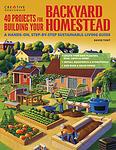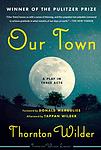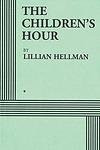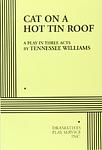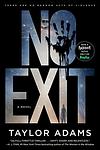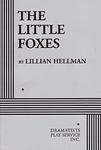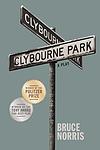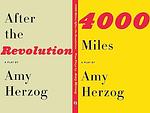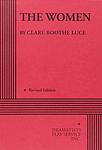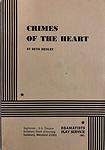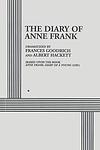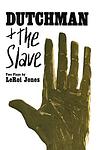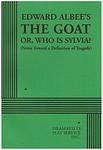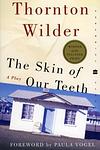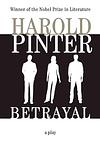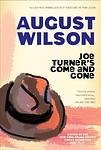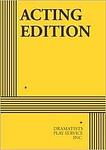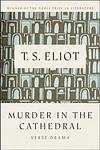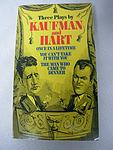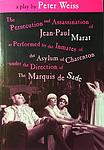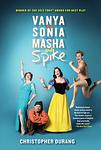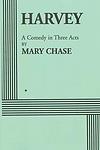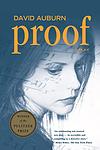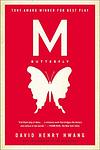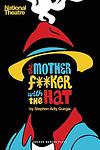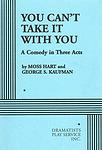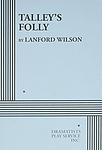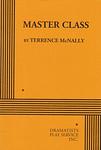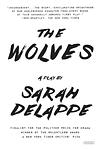The 101 GREATEST PLAYS of the Past 100 Years (1920-2020)
This is one of the 284 lists we use to generate our main The Greatest Books list.
-
Long Day's Journey Into Night by Eugene O'Neill
"Long Day's Journey Into Night" is a semi-autobiographical play that explores the complex dynamics of a family tormented by addiction and regret. The narrative follows the Tyrone family, composed of two parents and their two adult sons, over the course of a single day. As the day progresses, the family members engage in soul-baring conversations that reveal their individual struggles with alcohol and drug addiction, their deep-seated resentments, and the love that binds them together despite their flaws. The play is a poignant examination of the human condition, familial bonds, and the destructive power of addiction.
-
A Streetcar Named Desire by Tennessee Williams
"A Streetcar Named Desire" is a classic American play that explores themes of desire, desperation, and decay through the story of Blanche DuBois, a former schoolteacher from a once-wealthy Southern family who moves in with her sister Stella and her brutish husband Stanley in their cramped apartment in New Orleans. As Blanche grapples with her own past traumas and the harsh realities of her present situation, her mental state deteriorates, leading to a tragic end. The play presents a stark contrast between the genteel Old South and the gritty, working-class reality of post-WWII America.
-
Death Of A Salesman by Arthur Miller
This classic play explores the life of a failing salesman who, in his quest for the American Dream, struggles with his relationships and his own sense of reality. The protagonist's life spirals into despair as he grapples with his unfulfilled ambitions, strained family dynamics, and ultimately, his own mortality. The narrative delves deep into the themes of identity, illusion, and the destructive nature of the American Dream.
-
Who's Afraid Of Virginia Woolf? by Edward Albee
The play is a darkly comedic exploration of the complexities of marriage and personal disillusionment. Set over the course of a single evening, it follows an older couple, George and Martha, who, after a faculty party, invite a younger couple, Nick and Honey, to their home for late-night drinks. As the night progresses, George and Martha engage in increasingly vicious verbal battles in front of their guests, using them as pawns in their psychological warfare. The play delves into themes of reality versus illusion, as the characters' secrets and personal failures are exposed, revealing the deep-seated unhappiness and dysfunction at the heart of their relationships.
-
Waiting for Godot by Samuel Beckett
"Waiting for Godot" is a play that explores themes of existentialism, despair, and the human condition through the story of two characters, Vladimir and Estragon, who wait endlessly for a man named Godot, who never arrives. While they wait, they engage in a variety of discussions and encounter three other characters. The play is characterized by its minimalistic setting and lack of a traditional plot, leaving much to interpretation.
-
Angels In America by Tony Kushner
The play is a profound and complex exploration of the AIDS crisis in the 1980s, intertwining the lives of several characters grappling with their sexuality, religion, and politics. Set against the backdrop of a conservative Reagan-era America, it delves into themes of abandonment, race, and the supernatural, as characters confront personal and societal challenges. The narrative weaves together the stories of a gay man diagnosed with AIDS, his closeted and conflicted lover, a Mormon couple facing their own crises, and a notorious real-life lawyer, Roy Cohn, also battling AIDS. Ethereal beings, including a heralding angel, intersect with the characters' lives, adding a fantastical dimension to the play's commentary on human suffering, redemption, and the quest for justice and love.
-
Fences by August Wilson
The play explores the life of an African American family in the 1950s, focusing on the complex relationships between a father, who once aspired to be a professional baseball player but was thwarted by racial discrimination, and his family. The father's bitterness and frustrations over his unfulfilled dreams and the racial barriers of his time manifest in his relationships with his sons, who have their own hopes and ambitions. The narrative delves into themes of generational conflict, racial inequality, and the struggle for personal fulfillment, all symbolized by the fence the father builds around his yard, which serves as a metaphor for both division and protection.
-
The Crucible by Arthur Miller
Set during the Salem Witch Trials in the late 17th century, this play explores the hysteria, deceit, and religious extremism that plague a small Puritan village in Massachusetts. The protagonist, a flawed but essentially good man, is caught in a web of accusations when young girls in the town start displaying strange behavior and accusing others of witchcraft. The ensuing trials reveal not only the dangers of mass hysteria and false accusations, but also the destructive power of societal pressures and the human capacity for both cruelty and heroism.
-
A Raisin In The Sun by Lorraine Hansberry
The play explores the dreams and struggles of a Black family living on Chicago's South Side in the 1950s. When the family receives a $10,000 insurance check after the father's death, each member has different ideas about how to use the money. The mother wishes to buy a house to fulfill her late husband's dream of providing a better home for the family, while her son wants to invest in a liquor store to secure their financial future. The daughter seeks to use part of the money for her medical school tuition. Their conflicting aspirations and the pervasive racism of the era put a strain on the family's unity and values, as they strive to find their place in a world that often seems to work against them.
-
Our Town by Thornton Wilder
This play is a poignant depiction of life in a small American town called Grover's Corners, New Hampshire, at the turn of the 20th century. Through the everyday lives of its citizens, the narrative explores universal themes of love, marriage, mortality, and the passage of time. The story is narrated by a stage manager who directly addresses the audience and interacts with the characters, guiding viewers through the experiences of two families, the Gibbs and the Webbs. The play's minimalist staging and meta-theatrical elements emphasize the ephemeral nature of human existence, encouraging the audience to appreciate the beauty of life's ordinary moments.
-
The Glass Menagerie by Tennessee Williams
A memory play set in St. Louis during the Great Depression, it follows the story of the Wingfield family. The protagonist, Tom, struggles with his role as the breadwinner for his overbearing mother, Amanda, and his physically and emotionally fragile sister, Laura, who spends her time with her collection of glass animals. The family's life takes a turn when Tom invites a gentleman caller home for dinner to meet Laura, causing tensions to rise and secrets to unfold.
-
The Iceman Cometh by Eugene O'Neill
"The Iceman Cometh" is a play set in a New York City bar in 1912, featuring a group of down-and-out alcoholics who spend their days in a state of drunken stupor, telling tall tales and dreaming of better futures. The arrival of a former patron, now sober, disrupts their routine as he insists on forcing them to face the harsh realities of their lives and abandon their delusions. The play is a poignant exploration of despair, disillusionment, and the human capacity for self-deception.
-
Six Characters in Search of an Author by Luigi Pirandello
In this metatheatrical play, six characters come to life and demand that a theater director tell their tragic story, which was left incomplete by their author. As the director and his actors interact with these characters, the boundaries between fiction and reality blur, leading to a philosophical exploration of the nature of human identity, the reliability of art, and the unreliability of perception. The characters' story, involving a complex web of familial relationships, adultery, and suicide, further complicates the narrative, challenging the audience's understanding of truth and illusion.
-
Mother Courage and Her Children by Bertolt Brecht
Set against the backdrop of the Thirty Years' War, the book tells the story of a canteen woman, Mother Courage, who pulls her cart with her three children across war-torn Europe. It explores her struggles and survival tactics as she tries to profit from the war while keeping her children safe. The narrative is a profound critique of war and its consequences, highlighting the human cost of conflict and the often futile search for prosperity and security in a chaotic world.
-
Rhinoceros and Other Plays by Eugène Ionesco
"Rhinoceros and Other Plays" is a collection of three absurdist dramas that explore themes of conformity, culture, and mass movements. The titular play depicts a small French town where the inhabitants inexplicably transform into rhinoceroses, symbolizing the rise of fascism and the dangers of conformity. The other two plays, "The Leader" and "The Future is in Eggs," continue to explore these themes through a satirical and often surreal lens, challenging societal norms and the nature of reality itself.
-
The Children's Hour by Lillian Hellman
The play revolves around the lives of two women who run an all-girls boarding school. Their peaceful and successful life is shattered when a malicious student starts an unfounded rumor that the two women are engaged in a lesbian relationship. The lie quickly spreads, leading to public scandal, financial ruin, and a devastating court case for the women. The narrative delves into themes of lies, malice, the destructive power of gossip, and the tragic consequences that can arise from false accusations and societal prejudices.
-
Glengarry Glen Ross by David Mamet
The book is a scathing critique of the cutthroat world of real estate sales. It follows a group of desperate salesmen in Chicago who are willing to engage in a range of unethical and illegal acts—from lies and flattery to bribery and burglary—to sell undesirable real estate to unwitting buyers. The story is a snapshot of their lives over two days, highlighting the intense pressure they face from their company to close deals by any means necessary in order to survive in a merciless, competitive environment. The narrative delves into themes of capitalism, desperation, and the corrupting influence of a high-stakes sales culture, all while presenting a darkly comedic portrayal of the characters' struggles for success and self-preservation.
-
August by Tracy Letts
"August" is a darkly comic play that delves into the dysfunctional dynamics of the Weston family, brought together by the disappearance of their patriarch in the scorching heat of an Oklahoma summer. The reunion at the family home leads to a turbulent confrontation of long-held secrets, personal demons, and bitter sibling rivalries. As the family's matriarch, who is afflicted with cancer and addicted to pills, faces the reality of her crumbling world, the characters are forced to confront their past choices and the uncertain future that lies ahead. The narrative weaves a tale of a family struggling to find solace and meaning amidst chaos and decline.
-
The Homecoming by Harold Pinter
"The Homecoming" is a play that delves into the complex dynamics of a dysfunctional family when the eldest son returns home after a long absence. Set in North London, the story unfolds in the family's house, where the son introduces his wife to his domineering father, his uncle, and his two brothers. Tensions rise as the family's power struggles and hidden resentments come to the fore, leading to a shocking and unsettling realignment of relationships within the household. The play explores themes of power, sexuality, and the search for identity within the confines of a seemingly traditional family structure.
-
Saint Joan by George Bernard Shaw
This play is a dramatic depiction of the life and trial of Joan of Arc. The narrative follows the young, illiterate peasant girl who claims to hear voices from saints, guiding her to lead France to victory against England in the Hundred Years' War. Her success on the battlefield eventually leads to her capture and trial for heresy. The play explores themes of individualism, faith, and the corruption of institutions.
-
A View From The Bridge by Arthur Miller
The play is a tragic drama set in the 1950s in an Italian-American neighborhood near the Brooklyn Bridge in New York. It follows the life of Eddie Carbone, a longshoreman who lives with his wife Beatrice and his orphaned niece Catherine whom he has developed inappropriate feelings for. When Beatrice's cousins, illegal immigrants from Italy, arrive and one of them, Rodolpho, begins a romance with Catherine, Eddie's jealousy and obsession lead to betrayal and a tragic confrontation that culminates in violence and a devastating conclusion. The narrative explores themes of honor, family, and the struggle of the immigrant experience.
-
Cat on a Hot Tin Roof by Tennessee Williams
This classic play explores the turbulent relationships within a wealthy Southern family. The main characters include an alcoholic ex-football player, his wife, and his domineering father, who is dying of cancer. The story revolves around the family's internal conflict, deceit, and denial as they grapple with the patriarch's impending death and the question of who will inherit the family's wealth. Themes of sexual desire, repression, greed, and death are prominent in this intense, emotional drama.
-
The Heidi Chronicles by Wendy Wasserstein
The play follows the life of Heidi Holland from high school in the 1960s to her career as an art historian more than twenty years later. Through personal and professional struggles and triumphs, Heidi navigates the complexities of women's roles in society, friendships, and romantic relationships while trying to find her own sense of self. Set against the backdrop of significant historical events and cultural shifts in America, the narrative explores themes of feminism, the changing status of women, and the quest for fulfillment, ultimately questioning whether true success and happiness are attainable for a modern woman.
-
Fool For Love by Sam Shepard
"Fool for Love" is a play that delves into the complex and turbulent relationship between two former lovers who find themselves holed up in a seedy motel room on the edge of the Mojave Desert. As they confront their intertwined past and the deep-seated secrets that have driven them apart, the play explores themes of obsession, identity, and the blurred lines between reality and illusion. The presence of an old man, who observes and comments on the action, adds a layer of mystery and symbolism, while the arrival of another character introduces an external perspective to the couple's intense emotional struggle. The play's raw dialogue and dramatic tension reflect the characters' desperate struggle for connection and their inability to escape the destructive patterns that bind them.
-
All My Sons by Arthur Miller
The play explores the complex dynamics of the Keller family in the aftermath of World War II, where the patriarch's morally dubious business decisions have tragic consequences. The family grapples with issues of guilt, responsibility, and the true cost of the American Dream when it's revealed that the father knowingly sold defective airplane parts to the military, leading to the deaths of 21 pilots and the subsequent conviction of his business partner. The drama intensifies as secrets unravel, leading to a climax that forces the characters to confront their complicity in the crime and its impact on their family and community.
-
Master Harold...And The Boys by Athol Fugard
The play takes place in South Africa during the era of apartheid and revolves around the complex relationship between a young white boy and two black men who work in his mother's tea room. The boy has grown up with these men and shares a close bond with them, but as he struggles with personal turmoil and the pressures of the racist society around him, he begins to assert his racial superiority, leading to a devastating display of discrimination and the shattering of their familial relationship. The narrative explores themes of racism, human dignity, and the impact of societal injustice on personal relationships.
-
The Vortex by Noel Coward
The play is a provocative drama that delves into the lives of a high-society mother and her son, both entangled in a web of self-indulgence and addiction. The mother, a narcissistic and aging beauty, is involved in a series of shallow love affairs, while her son grapples with a spiraling drug addiction. Their dysfunctional relationship comes to a head when the son returns home from abroad, leading to a confrontation that exposes the emotional voids within their glamorous but hollow lives. The play is a critique of the hedonistic lifestyle of the British upper class in the 1920s and explores themes of family dynamics, the pursuit of youth, and the destructive nature of addiction.
-
The Bald Soprano by Eugène Ionesco
"The Bald Soprano" is a play that explores the absurdity of everyday life through a nonsensical narrative. It revolves around two middle-class English couples, the Smiths and the Martins, who engage in meaningless and repetitive conversations. The play is known for its unconventional structure, lack of plot, and the characters' surreal behavior, which are all used to satirize the banality and futility of routine and social norms. The title refers to a character who is never seen or mentioned again after the opening scene.
-
Endgame by Samuel Beckett
Endgame is a one-act play that follows the lives of Hamm, a blind and unable to stand man, and Clov, his servant who cannot sit. They live in a single room, with Hamm's legless parents residing in dustbins. The characters are trapped in a cyclical existence where they constantly argue and contemplate life, death, and their own existence. The play is characterized by its minimalistic setting and bleak outlook on life, reflecting themes of existentialism and the human condition.
-
Machinal by Sophie Treadwell
The play is a powerful expressionist work that follows the life of a young woman who feels trapped and dehumanized by the societal expectations and mechanical nature of the early 20th-century urban environment. She is suffocated by her mundane job, an oppressive marriage to her boss, and the overall constraints of a patriarchal society. Her desperate longing for freedom and individuality leads her down a dark path that culminates in a shocking and tragic act, ultimately resulting in her entanglement with the justice system. The narrative is a critique of the industrial age and its impact on the human spirit, exploring themes of autonomy, alienation, and the crushing force of societal norms.
-
No Exit by Jean Paul Sartre
The book is a profound existentialist play that delves into the human psyche and the concept of hell through the experiences of three deceased characters who find themselves trapped together in a mysterious, windowless room. As they engage in intense psychological games and confront the worst aspects of their earthly behaviors, they come to the harrowing realization that their torment comes not from any external punishment, but from each other and the eternal company they are forced to keep. The narrative explores themes of freedom, responsibility, and the often unbearable nature of human existence, encapsulated in the famous line, "Hell is other people."
-
The Little Foxes by Lillian Hellman
The play is a riveting Southern Gothic tale that delves into the greed and deceit within the Hubbard family in the Deep South at the turn of the 20th century. As the family members scheme and manipulate each other to gain control of a lucrative cotton mill venture, the narrative exposes the moral decay festering beneath their quest for wealth. Central to the story is a strong-willed and manipulative matriarch who will stop at nothing to secure her financial future, even at the expense of her own family's happiness and well-being. The play's exploration of themes such as ambition, betrayal, and the corrosive effects of greed makes it a powerful and enduring piece of American drama.
-
Clybourne Park by Bruce Norris
The play unfolds in two acts set fifty years apart, examining racial tensions and property ownership in a Chicago neighborhood. The first act takes place in the 1950s and revolves around a white couple who unwittingly sell their home to an African American family, sparking controversy among the white community. The second act is set in the same house in the present day, where the now predominantly African American neighborhood faces gentrification as a white couple plans to buy and renovate the historic home. The work cleverly juxtaposes the two eras, exploring themes of racism, community, and the evolution of attitudes toward race and real estate in America.
-
The Flick by Annie Baker
The play is a poignant exploration of the lives of three underpaid employees at a run-down movie theater in central Massachusetts. As they perform the menial labor of cleaning the theater between screenings, their conversations and interactions reveal the quiet desperation, unspoken dreams, and complex relationships that shape their everyday lives. The narrative unfolds with a deep sense of realism, capturing the subtle dynamics of friendship, the longing for connection, and the struggle to find meaning in the mundanity of daily work. Through its meticulous attention to detail and authentic dialogue, the play offers a window into the lives of ordinary people and the profound truths that lie in the quiet moments of the human experience.
-
God Of Carnage by Yasmina Reza
The book is a razor-sharp, satirical play that delves into the complexities of human nature and societal civility. When two sets of parents meet to discuss a physical altercation between their sons, what begins as a civilized conversation quickly devolves into a chaotic, explosive clash of egos and values. As the veneer of politeness strips away, the characters reveal their own pettiness, hypocrisy, and savagery, painting a darkly comic picture of the conflicts and contradictions inherent in modern society.
-
Noises Off by Michael Frayn
The book in question is a comedic narrative that takes readers behind the scenes of a chaotic and farcical theatrical production. It humorously details the mishaps, misunderstandings, and mayhem that ensue both on and offstage as a cast of eccentric actors attempts to present a play to their audience. With a play-within-a-play structure, the book provides a satirical look at the world of theater, showcasing the fragile egos, romantic entanglements, and technical disasters that can collide with disastrous and hilarious results. As the characters scramble to keep their performance from falling apart, the line between their on-stage roles and off-stage lives blurs, creating a whirlwind of slapstick and comedic timing that has delighted readers and audiences alike.
-
Doubt: A Parable by John Patrick Shanley
"Doubt: A Parable" is a gripping play set in a 1960s Bronx Catholic school, where the principal, Sister Aloysius, suspects the charismatic Father Flynn of improper relations with a student. As she seeks the truth, her convictions are challenged by the uncertainties and moral complexities of the situation. The play explores the nature of belief, the struggle for certainty in a world of ambiguity, and the consequences of acting on convictions in the absence of proof. Through its intense dialogue and powerful character dynamics, the narrative examines the fine line between righteousness and self-deception, leaving audiences to grapple with their interpretations of guilt and innocence.
-
The Dumb Waiter by Harold Pinter
The play is a tense, psychological drama that unfolds in a single room where two hitmen, Ben and Gus, are waiting for their next assignment. As they engage in mundane conversation and bicker over trivialities, the underlying power dynamics and their dependence on unseen forces become apparent. The arrival of mysterious messages through a dumbwaiter further heightens the suspense, as the orders they receive become increasingly absurd and their mission's purpose grows more ambiguous. The play explores themes of communication, existential dread, and the human condition, culminating in an unsettling, unresolved conclusion that leaves the audience questioning the nature of control and the fate of the characters.
-
Radio Golf by August Wilson
Set in the 1990s, the play explores the complexities of African-American identity and the impact of gentrification in Pittsburgh's Hill District. It centers on an ambitious real estate developer who aspires to become the city's first Black mayor. His plans to revitalize the neighborhood by constructing high-end apartments and chain stores clash with the community's history and the legacy of a dilapidated house that holds significant cultural heritage. As he navigates political, ethical, and personal dilemmas, the protagonist is forced to confront the true cost of progress and the meaning of being a successful Black man in America, ultimately questioning whether the price of his ambitions might be the soul of his community.
-
True West by Sam Shepard
The play is a darkly comedic exploration of the volatile relationship between two estranged brothers who are brought together at their mother's suburban California home. The older brother, a struggling screenwriter, is working on a script while housesitting, only to be interrupted by his younger sibling, a drifter and thief. What follows is an intense, often surreal, confrontation that challenges their identities and aspirations, ultimately leading to a role reversal as they vie for the approval of a Hollywood producer. Their conflict escalates to a point of no return, symbolizing the clash of American myths and realities and questioning the very nature of authenticity and success.
-
The Zoo Story by Edward Albee
The play is a gripping exploration of isolation, loneliness, and social disparity in modern America, told through an intense encounter between two strangers in Central Park. Jerry, a disheveled and desperate man, intrudes on the peaceful solitude of Peter, a well-to-do publisher of textbooks, and forces him into a conversation. As Jerry probes into Peter's life and shares his own disturbing narrative, the conversation spirals into a confrontation that ends in sudden violence, challenging the audience to reflect on the nature of human interaction and the invisible walls that separate people in society.
-
4000 Miles by Amy Herzog
The play follows the emotional journey of a young man who, after suffering a major loss during a cross-country bike trip, seeks solace and understanding by visiting his feisty 91-year-old grandmother in her West Village apartment. As the unlikely pair navigates the complexities of family, independence, and coming of age, their generational gaps both challenge and deepen their bond. Through a series of candid, heartfelt conversations, they explore themes of grief, connection, and the search for personal identity, revealing the profound impact of intergenerational relationships and the resilience needed to heal from life's unpredictable trials.
-
Sweat by Lynn Nottage
"Sweat" is a powerful drama that delves into the lives of factory workers in Reading, Pennsylvania, as they grapple with deindustrialization, economic instability, and the resulting social tensions that arise in the early 2000s. The play explores the complexities of friendship, race, and class against the backdrop of a once-thriving steel town that is now facing job losses and the erosion of the American Dream. As the characters confront layoffs and picket lines, their close-knit relationships are tested, revealing the personal and collective struggles of a community in a world where work, which once promised security and identity, becomes a source of uncertainty and division.
-
Copenhagen by Michael Frayn
"Copenhagen" is a thought-provoking play that delves into the historical meeting between two prominent physicists during World War II. Set as a posthumous reimagining, it explores the complex relationship between the two men, their discussions on nuclear physics, and the moral implications of their work on atomic weapons. The narrative structure blurs the lines between past and present, as the characters attempt to unravel their motivations and the potential consequences of their actions, against the backdrop of a Europe engulfed in conflict. The play raises deep questions about science, ethics, and the elusive nature of memory and human interaction.
-
Look Back In Anger by John Osborne
The play centers around Jimmy Porter, an intelligent and educated but disaffected young man of working-class origin who is married to Alison, a woman from a more privileged background. Set in post-war Britain, the narrative captures the couple's volatile relationship and Jimmy's frustration with the lack of opportunities and the class structure that he feels traps him. The arrival of Alison's friend, Helena, adds further tension as she both criticizes and is attracted to Jimmy's raw passion. Themes of anger, class conflict, and disillusionment with the establishment are woven throughout the play, which ultimately explores the complexities of human relationships and societal expectations.
-
The Women by Clare Booth Luce
The play in question is a satirical commentary on the lives of Manhattan socialites and the pettiness of their ostensibly glamorous world. Through a cast composed entirely of women, it delves into themes of friendship, betrayal, and the cutthroat social standings of its characters. The narrative centers around the protagonist's discovery of her husband's infidelity and her subsequent journey through gossip, backstabbing, and the quest for personal growth and independence amidst the high society of the 1930s. The play is a sharp critique of the superficial relationships and the power dynamics among women within the upper crust of society.
-
Crimes Of The Heart by Beth Henley
The play is a darkly comic tale of the Magrath sisters, who reunite at their grandfather's home in Mississippi after one of them, Babe, has shot her abusive husband. The sisters are forced to confront the consequences of their own "crimes of the heart," which include loneliness, infidelity, and failure. Through sharp dialogue and poignant moments, the narrative explores themes of family dysfunction, societal expectations, and the search for personal happiness amidst the chaos of their lives. As they navigate through past resentments and present crises, the sisters ultimately find solace and strength in their sisterhood.
-
What The Butler Saw by Joe Orton
The play is a farcical comedy that delves into the chaotic world of Dr. Prentice, a psychiatrist, whose attempts to seduce his attractive prospective secretary, Geraldine Barclay, spiral out of control with the unexpected arrival of his wife, the government inspector Dr. Rance, and a bellboy who blackmails him. Set in a psychiatric clinic, the plot involves mistaken identities, cross-dressing, and ludicrous misunderstandings. The narrative satirizes the absurdities of psychiatry, sexual mores, and the British establishment, culminating in a whirlwind of comic situations that challenge social norms and the concept of "normalcy."
-
The Odd Couple by Neil Simon
The play revolves around two mismatched roommates: the fastidious, neurotic Felix Ungar and the slovenly, easygoing Oscar Madison. After Felix's marriage falls apart, he moves in with Oscar, who is also recently divorced. Their contrasting personalities and habits lead to comedic conflict and tension within their New York City apartment, as they struggle to coexist and support each other through their respective mid-life crises. The story explores themes of friendship, the challenges of living with others, and the humorous trials of post-divorce life.
-
The Diary Of Anne Frank by Albert Hackett, Frances Goodrich
The book is a dramatic adaptation of the original diary written by a young Jewish girl who, along with her family and others, went into hiding during the Nazi occupation of the Netherlands in World War II. Over the course of two years, she records her thoughts, feelings, and experiences in a secret annex of an Amsterdam building. The diary poignantly captures the realities of living in constant fear of discovery, while also detailing the personal growth, aspirations, and everyday life of a teenager in extraordinary circumstances. The narrative ends abruptly when the group is betrayed and sent to concentration camps, with the girl's father being the only survivor. The diary's posthumous publication offers a deeply personal insight into the horrors of the Holocaust and the indomitable spirit of its young author.
-
Red by John Logan
The play is a captivating portrayal of a renowned abstract expressionist painter at the peak of his career, facing the challenge of creating a significant series of murals. Set over the course of two years, it delves into the artist's volatile relationship with a fictional young assistant, who challenges his artistic integrity, methods, and philosophy. Through intense dialogue and shifting dynamics, the narrative explores the nature of art, the act of creation, and the inevitable clash between ambition and commercialism, all while reflecting on the burden of legacy and the struggle for relevance in a rapidly changing art world.
-
Rosencrantz & Guildenstern Are Dead by Tom Stoppard
The play is an absurdist, existential tragicomedy that follows two minor characters from Shakespeare's "Hamlet," Rosencrantz and Guildenstern, who are now the protagonists in their own story. As they stumble through philosophical debates and encounter a troupe of actors while trying to understand the nature of reality and their own existence, they find themselves increasingly out of their depth in a world where they have little control over their fate. The narrative weaves in and out of events from "Hamlet," offering a humorous and poignant perspective on free will, chance, and the search for meaning in a seemingly indifferent universe.
-
Picnic by William Inge
The play unfolds in a small Kansas town on Labor Day weekend, where the arrival of a charismatic young drifter stirs emotions and ignites passions among the local residents. The central story revolves around a young woman who dreams of escaping her mundane life and the drifter whose presence challenges the community's prevailing attitudes and leads to a dramatic confrontation. As the town prepares for its annual picnic, the characters' lives intertwine, revealing their desires, disappointments, and the pursuit of happiness in mid-20th-century America.
-
The Boys In The Band by Matt Crowley
"The Boys in the Band" revolves around a group of gay men who gather for a birthday party in New York City in the late 1960s. The evening takes an unexpected turn when the host's college roommate, a presumably straight man, shows up unexpectedly. As the night progresses, fueled by alcohol and a game that forces them to call the person they truly love, hidden truths emerge, and the men are confronted with the challenges of friendship, self-acceptance, and the societal pressures of being gay in a pre-Stonewall era. The play is a landmark piece that captures the complexity and tension of gay life at a time when homosexuality was still largely taboo.
-
The Dutchman by Amiri Baraka
"The Dutchman" is a provocative play set on a New York City subway train, where a young African-American man, Clay, encounters Lula, a flirtatious and mysterious white woman. The play unfolds as a tense, psychological confrontation that escalates into a symbolic and violent exploration of racial dynamics and identity in 1960s America. Through their interaction, the narrative delves into themes of race, sexuality, and power, ultimately leading to a shocking and tragic climax that forces the audience to confront the social and political undercurrents of the era.
-
The Aliens by Annie Baker
The play centers around two thirty-something men, Jasper and KJ, who spend their time behind a Vermont coffee shop discussing music, philosophy, and their personal struggles, embodying a sense of aimlessness and lost potential. Their static existence is interrupted when they form an unlikely friendship with Evan, a high school student and employee of the coffee shop. Through their conversations and interactions, the trio explores themes of connection, the search for meaning, and the poignant moments found in the mundanity of everyday life. The narrative unfolds with a quiet intensity, capturing the essence of small-town ennui and the subtle dynamics of male friendship.
-
American Buffalo by David Mamet
The play delves into the gritty world of small-time criminals, focusing on three men plotting to steal a valuable buffalo nickel from a coin collector. Set in a junk shop, the narrative explores themes of loyalty, betrayal, and the elusive American Dream. As the characters scheme and the heist unfolds, the play reveals the desperation and moral ambiguity that drive their actions, ultimately questioning the price of their pursuit of wealth and success in a society that seems to have abandoned them.
-
The Goat, Or Who Is Sylvia? by Edward Albee
The play centers on a successful middle-aged architect whose life unravels when he confesses to his family that he has fallen in love with a goat named Sylvia. This revelation shocks his wife and gay teenage son, leading to a tumultuous exploration of the limits of tolerance, societal norms, and the nature of love. As the protagonist defends his affair, the narrative delves into themes of infidelity, the breakdown of family, and the questioning of conventional morality, ultimately challenging the audience to confront the boundaries of their own acceptance.
-
Inherit The Wind by Jerome Lawrence, Robert E. Lee
The book dramatizes a landmark legal battle over the teaching of evolution in schools, reflecting the tension between science and religious fundamentalism. Set in a small Southern town, it follows the intense courtroom showdown between two legal titans: one defending a young teacher accused of the crime of teaching Darwin's theories, the other representing the prosecution, backed by conservative religious forces. Through its portrayal of the trial and the surrounding media frenzy, the narrative explores themes of intellectual freedom, the right to think, and the profound conflict between progress and tradition in American society.
-
Wit by Margaret Edson
The play is a poignant exploration of the life of a brilliant and exacting English professor who is diagnosed with terminal ovarian cancer. As she undergoes aggressive and painful treatment, she reflects on her life and work, particularly her study of the metaphysical poets, with a focus on the intricacies of John Donne's Holy Sonnets. The narrative juxtaposes the complexities of human emotions with the clinical detachment of the medical profession, ultimately offering a meditation on mortality, the value of human connection, and the meaning of life when faced with the imminence of death. Through her illness, the protagonist confronts the irony and tragedy of her situation, using her wit to cope with her deteriorating condition and to question the significance of her scholarly achievements.
-
The Skin Of Our Teeth by Thornton Wilder
"The Skin of Our Teeth" is a groundbreaking play that chronicles the enduring struggles and resilience of the human race through the allegorical story of the Antrobus family. Set in various eras of human history, the family confronts repeated catastrophes, including the Ice Age, a great flood, and a devastating war. With a blend of tragic and comic elements, the play employs a metatheatrical style, breaking the fourth wall and commenting on the nature of human existence. Through the cyclical trials and triumphs of the Antrobus family, the narrative emphasizes the persistence and adaptability of humanity in the face of constant challenges, encapsulating the spirit of survival against all odds.
-
Private Lives by Noel Coward
"Private Lives" is a sophisticated comedy of manners that explores the complexities of love and relationships. The play centers around a divorced couple who, while honeymooning with their new spouses, discover they are staying in adjacent rooms at the same hotel. Their rekindled passion for each other leads to a comedic and tumultuous affair, as they grapple with the realization that they cannot live with or without one another. The sharp wit and sparkling dialogue highlight the frivolity and the underlying emotional truth of the characters' tumultuous relationships, making it a timeless piece that satirizes the manners and morals of high society.
-
Betrayal by Harold Pinter
"Betrayal" is a play that explores the complexities of human relationships through a reverse chronological narrative, focusing on a love triangle among the central characters. The story delves into the intricate dynamics of infidelity, friendship, and deceit, as it unfolds the emotional and psychological consequences of a long-term extramarital affair between the wife and the best friend of her husband. The play dissects themes of loyalty, trust, and the passage of time, revealing the characters' inner struggles and the ultimate impact of their deceitful actions on their lives and relationships.
-
Joe Turner's Come And Gone by August Wilson
The play is set in a Pittsburgh boarding house in 1911 and tells the story of the inhabitants, who are part of the Great Migration of African Americans fleeing the oppressive South. The central character, Herald Loomis, arrives with his young daughter, searching for his wife who he hasn't seen since he was illegally enslaved for seven years. The residents of the boarding house are a microcosm of the African American experience of the time, each grappling with their past and seeking a foothold in a new world. The play explores themes of identity, migration, and the African American search for cultural and personal redemption.
-
Torch Song Trilogy by Harvey Fierstein
"Torch Song Trilogy" is a collection of three plays that follow the life and emotional journey of a Jewish drag queen living in New York City from the late 1970s to the early 1980s. The protagonist navigates the complexities of love, family, and identity against the backdrop of the gay rights movement and the burgeoning AIDS crisis. With humor and pathos, the plays explore themes of acceptance, the human longing for connection, and the struggle for self-respect in a society that often shows hostility towards those who defy traditional norms. Through the protagonist's relationships—with a fickle lover, an adopted son, and a disapproving mother—the narrative weaves a poignant tapestry of the trials and triumphs of the human heart.
-
The Inheritance by Matthew Lopez
"The Inheritance" is a two-part play that explores the lives of a group of gay men in New York City a generation after the height of the AIDS epidemic. Inspired by the novel "Howards End" by E.M. Forster, the play examines themes of love, loss, legacy, and the connection between past and present. The characters navigate personal and political struggles, relationships, and the search for a sense of belonging and purpose, all while reflecting on the cultural inheritance of the gay community and the impact of those who came before them. Through its poignant and heartfelt narrative, the play offers a powerful commentary on the human condition and the enduring need for community and connection.
-
Love! Valour! Compassion! by Terrence McNally
The play is a poignant exploration of the lives, relationships, and struggles of eight gay men who gather over the course of three summer weekends at a lakeside house in upstate New York. As they confront issues of fidelity, love, illness, and mortality against the backdrop of the mid-1990s AIDS epidemic, the friends navigate the complexities of their lives with humor, compassion, and sometimes heated conflict. The narrative delves deep into the bonds of friendship and the human need for connection, revealing the characters' desires, fears, and hopes in the face of an uncertain future.
-
Gloria by Branden Jacob-Jenkins
The play "Gloria" is a sharp dissection of the cutthroat world of media and the pursuit of success within it. It follows a group of ambitious editorial assistants at a notorious Manhattan magazine, each vying for their chance at fame and a book deal before they hit thirty. Their mundane office life is thrown into chaos when an ordinary day at the office spirals into a shocking display of violence, with the aftermath forcing them to confront the harrowing realities of their competitive environment and the lengths they are willing to go to for recognition. The narrative explores themes of ambition, the exploitation of tragedy, and the fleeting nature of modern fame.
-
Six Degrees Of Separation by John Guare
The play explores the premise that everyone in the world is connected to everyone else by a chain of no more than six acquaintances. It centers around a young con artist who infiltrates the lives of a wealthy New York couple, claiming to be the son of a famous movie star and a classmate of their children at Harvard. By spinning a web of lies and charm, he exposes the superficial nature of their social world while also revealing the deep-seated racial and class anxieties that lie beneath the polished surface of their lives. The title refers to the idea that any two individuals are connected by a chain of, at most, six other people, which becomes a metaphor for the interconnectedness of human experience and the illusion of separation in society.
-
Ruined by Lynn Nottage
The play is a gripping tale set in a small mining town in the war-torn Democratic Republic of Congo. It centers on the struggles of women who seek refuge in a bar and brothel run by a shrewd businesswoman who both protects and profits from her customers. The narrative delves into the complex relationships and survival strategies in a land ravaged by civil war, focusing on the resilience of women facing unspeakable hardships, their sense of community, and the human capacity for endurance amidst a landscape of moral ambiguity and ruin.
-
Amadeus by Peter Shaffer
The play explores the tumultuous life of a young musical genius, as seen through the envious eyes of his less-talented contemporary. Set in the opulent world of 18th-century Vienna, the story delves into the bitter rivalry between the established court composer and the prodigious newcomer who threatens to overshadow him. As the older composer recounts his efforts to undermine the young virtuoso's career, a complex narrative of obsession, intrigue, and madness unfolds, culminating in a haunting examination of the price of genius and the destructive nature of jealousy.
-
Murder In The Cathedral by T. S. Eliot
The play dramatizes the internal conflict of a 12th-century archbishop, Thomas Becket, as he grapples with the temptation of spiritual pride and the implications of defying King Henry II. Upon his return from exile, Becket faces pressure from the king and his own tempters to compromise his principles for safety and convenience. Ultimately, Becket chooses to embrace his role as a martyr, fulfilling his duty to God over the monarchy. His assassination in Canterbury Cathedral by the king's knights is depicted as an act of martyrdom, exploring themes of faith, loyalty, and the struggle between church and state.
-
Sweet Bird Of Youth by Tennessee Williams
The play centers around a young, handsome drifter named Chance Wayne, who returns to his hometown with a faded movie star, hoping to capitalize on her fame to achieve his own success and reclaim his former love, Heavenly Finley. However, Chance's dreams of redemption and stardom are threatened by his tarnished reputation and the machinations of Heavenly's father, a corrupt political figure who seeks to drive him out of town to protect his family's name. As Chance confronts the consequences of his past actions, the narrative explores themes of lost youth, the corrupting influence of power, and the elusive nature of fame and personal fulfillment.
-
The Humans by Stephen Karam
"The Humans" is a play that explores the complexities of family dynamics and the human condition through the lens of a Thanksgiving dinner at a run-down New York City apartment. The narrative delves into the fears, hopes, and secrets of the Blake family as they navigate issues such as aging, illness, economic instability, and the search for connection in a modern world. Throughout the dinner, the family's interactions reveal the fragility of their relationships and the strength of their bonds, painting a poignant and often humorous portrait of contemporary American life.
-
The Man Who Came To Dinner by George S. Kaufman, Moss Hart
The play centers around a cantankerous radio personality who slips on ice and injures himself outside a prominent family's home, leading to an extended and unwelcome stay. During his convalescence, he takes over the household with his eccentric behavior, demanding nature, and barrage of quirky guests, turning his hosts' lives upside down. As he interferes in the family's personal affairs and meddles with the love life of his secretary, the comedy unfolds through a series of farcical situations, witty dialogue, and a parade of outlandish characters, ultimately leading to a resolution where the true nature of friendship and the impact of his overbearing personality are revealed.
-
Strange Interlude by Eugene O'Neill
"Strange Interlude" is a Pulitzer Prize-winning play that delves into the complex inner lives and psychological struggles of its characters over a span of several decades. The narrative revolves around Nina Leeds, a woman haunted by her father's oppressive influence and her lover's death in World War I. As she seeks solace in various relationships, including a troubled marriage and an affair, the play employs unconventional techniques such as soliloquies and asides to reveal the characters' private thoughts and motivations. This exploration of themes such as mental illness, infidelity, and the search for meaning in the interwar period showcases the characters' intricate emotional landscapes and the societal pressures they navigate.
-
The Time Of Your Life by William Saroyan
"The Time Of Your Life" is a play set in a San Francisco waterfront saloon in the 1930s, where a diverse group of characters, each with their own dreams and disappointments, converge. The central figure, a lovable and philosophical barfly, observes and interacts with the various patrons, including a lovesick loiterer, a desperate dancer, an aspiring actor, and a wealthy tycoon. The ensemble cast of characters grapples with the pursuit of happiness, the meaning of life, and the search for a sense of belonging in a world that can often feel chaotic and indifferent. The play celebrates the human spirit, emphasizing the importance of living in the present and appreciating the time of one's life.
-
Marat Sade by Peter Weiss
The play is a dramatic exploration of power, class struggle, and human suffering set within the confines of an insane asylum in 1808 France. It depicts the Marquis de Sade as an inmate directing his fellow patients in a play about the assassination of Jean-Paul Marat, a radical journalist and politician during the French Revolution. The work delves into the philosophical and political debates between Sade and Marat, representing differing views on revolution, freedom, and the nature of humanity. As the inmates perform, the line between performance and reality blurs, creating a provocative and chaotic theater experience that challenges the audience's perception of madness and reason.
-
Good People by David Lindsay-Abaire
The play explores the struggles and complexities of class and social mobility through the lens of Margie Walsh, a sharp-tongued single mother from South Boston. After losing her job at a dollar store, Margie reaches out to an old flame, now a successful doctor, in hopes of finding employment. As their past and present collide, the narrative delves into themes of opportunity, resilience, and the challenging question of whether individuals can truly escape the circumstances of their birth. The interactions between characters reveal the intricate dynamics of old friendships, the judgments we make, and the role that luck plays in the American Dream.
-
Vanya And Sonia And Masha And Spike by Christopher Durang
The play is a comedic exploration of the complexities of family dynamics, middle-age despair, and the search for identity amidst the chaos of modern life. It follows the story of two middle-aged siblings, Vanya and Sonia, whose quiet, mundane lives in their Pennsylvania family home are disrupted by the return of their movie-star sister, Masha, and her much younger lover, Spike. As they confront their regrets and the fear of being left behind by a world that's moved on without them, the siblings grapple with their relationships, their missed opportunities, and their hopes for the future, all while dealing with the eccentricities of a visiting fortune-telling housekeeper and a star-struck neighbor. The narrative is a poignant yet humorous take on the themes of family, aging, and the desire to belong, all underscored by elements borrowed from classic Russian literature.
-
Harvey by Mary Chase
This play centers around Elwood P. Dowd, a mild-mannered and affable man whose best friend is Harvey, a six-foot, three-and-one-half-inch tall invisible rabbit. Elwood's unwavering belief in his peculiar companion exasperates his social-climbing sister, Veta, leading her to attempt to commit Elwood to a sanitarium. However, a comedy of errors ensues when the doctors mistakenly target Veta instead, questioning her sanity. As the search for Elwood and his invisible companion intensifies, the characters are drawn into a series of farcical situations that ultimately challenge their perceptions of reality and the value of nonconformity, friendship, and kindness in a world that often prioritizes appearances and normality.
-
Proof by David Auburn
The play revolves around the daughter of a recently deceased mathematical genius who grappled with mental illness. As she comes to terms with her father's legacy and her own potential for both genius and madness, she faces the challenge of proving the authorship of a groundbreaking mathematical proof found among her father's papers. The narrative delves into themes of trust, credibility, and the complex bonds between geniuses and their caretakers, all while exploring the fine line between brilliance and insanity.
-
M. Butterfly by David Henry Hwang
In this dramatic play, an unconventional romance unfolds between a French diplomat and a mysterious Chinese opera singer. The diplomat becomes infatuated with the singer, who he believes to be a woman, only to have his perceptions of love, gender, and cultural identity challenged. As their affair deepens over two decades, the diplomat remains oblivious to the singer's true gender and the political espionage at play. The story, inspired by real events, ultimately explores themes of Orientalism, the fluidity of identity, and the devastating consequences of deception and self-delusion.
-
Waiting For Lefty by Clifford Odets
This play is a powerful and emotionally charged piece of American agitprop theater that centers on the struggles of taxi drivers in the 1930s facing exploitative working conditions. Through a series of vignettes and monologues, it delves into the lives of individual workers, revealing their personal hardships and the impact of broader social injustices. The narrative builds towards a climactic union meeting where the characters debate whether to strike against their oppressive bosses. The play is renowned for its leftist political stance and its call to collective action, encapsulating the spirit of working-class resistance and solidarity during a time of economic turmoil.
-
The Motherf**Ker With The Hat by Stephen Adly Guirgis
The play is a dark comedy that delves into the complexities of love, addiction, and betrayal. It follows the story of Jackie, a parolee who is trying to stay clean and make a fresh start with the support of his sponsor. However, his life is thrown into turmoil when he discovers a mysterious hat in the apartment he shares with his longtime girlfriend, leading him to suspect infidelity. As Jackie confronts his demons and the relationships around him begin to unravel, the narrative takes a hard look at the challenges of maintaining trust and fidelity in a world filled with temptations and moral ambiguity.
-
You Can't Take It With You by George S. Kaufman, Moss Hart
The play is a comedic tale that revolves around the eccentric Sycamore family, who lead a carefree and unorthodox life, much to the confusion and dismay of outsiders. When Alice Sycamore becomes engaged to Tony Kirby, the son of a wealthy and conservative family, the Sycamores' offbeat lifestyle clashes with the Kirbys' uptight demeanor. The ensuing chaos and misunderstandings lead to a series of humorous encounters, ultimately conveying the message that happiness and love are more important than money and social status, and that life is best lived to the fullest, without concern for societal expectations.
-
Bad Jews by Joshua Harmon
The play centers around three cousins who gather in a cramped Manhattan apartment after their grandfather's funeral. As they mourn, a fierce battle ensues over a cherished family heirloom, a Chai necklace that symbolizes their grandfather's faith and survival during the Holocaust. The dispute quickly escalates into a broader conflict over religious identity, privilege, and what it means to be a "good" Jew in contemporary America. The narrative explores themes of family, faith, and the legacy of history, all while delivering sharp-witted dialogue and dark humor.
-
A Delicate Balance by Edward Albee
"A Delicate Balance" is a play that explores the intricate dynamics of a suburban family whose lives are disrupted over the course of a weekend. The story centers around a middle-aged couple, their adult daughter who has returned home after her fourth marital breakup, and the couple's best friends who seek refuge in their house due to an undefined terror they've experienced. The arrival of the couple's alcoholic sister further complicates the situation. Throughout the play, themes of existential dread, the search for meaning in modern life, and the fragile nature of personal relationships are examined as the characters confront their fears, resentments, and the delicate balance between sanity and chaos in their seemingly comfortable existence.
-
Jitney by August Wilson
Set in the 1970s in a dilapidated Pittsburgh neighborhood, the play centers around a makeshift taxi station, where a group of African American men work as unofficial cab drivers, or "jitneys." Over the course of the drama, the characters navigate personal and communal struggles, dealing with themes such as gentrification, the importance of legacy, and the quest for respect and dignity. Interpersonal conflicts and the bonds of friendship and community are tested as the men confront their pasts and face uncertain futures, all while the specter of the station's imminent closure looms over them. The play is a rich tapestry of interwoven stories that together paint a vivid portrait of a community at a crossroads.
-
Talley's Folly by Lanford Wilson
The play is a romantic tale set in an old, dilapidated Victorian boathouse in Missouri during World War II. It unfolds over the course of one evening, as two unlikely lovers, Matt Friedman, a Jewish immigrant accountant from St. Louis, and Sally Talley, a nurse from a conservative Protestant family, engage in a poignant dialogue that reveals their pasts, their fears, and their hopes. Through their conversation, they confront social prejudices, family disapproval, and their own insecurities, ultimately finding a connection that transcends the folly of the boathouse and the era's societal constraints. The play is a lyrical exploration of love, acceptance, and the courage it takes to pursue happiness against all odds.
-
The Pillowman by Martin McDonagh
The play is a dark, thought-provoking drama that centers around a writer in a totalitarian state who is interrogated by two detectives about the gruesome content of his short stories, which bear similarities to a series of child murders. As the narrative unfolds through a series of twists and flashbacks, it delves into themes of storytelling, the nature of cruelty, and the question of whether art can inspire real-life violence. The writer is forced to confront his past and the impact of his tales, leading to a harrowing exploration of the power of narrative and the blurred lines between fiction and reality.
-
Blithe Spirit by Noel Coward
The play centers around a socialite and novelist who invites an eccentric medium to his house to conduct a séance, hoping to gather material for his next book. The plan backfires when the ghost of his temperamental first wife is summoned, creating a love triangle between the living and the dead. As the mischievous spirit causes chaos and confusion, the protagonist must navigate the complexities of his past and present relationships, leading to humorous and unexpected consequences.
-
A Doll's House, Part 2 by Lucas Hnath
In this play, a sequel to a classic 19th-century drama, the protagonist returns to the family she abandoned 15 years earlier. Her unexpected visit stirs up old wounds and confronts the societal changes that have occurred since her departure. The characters engage in intense dialogues that explore the complexities of marriage, family dynamics, and the pursuit of individual freedom. The play challenges traditional gender roles and the concept of closure, offering a fresh perspective on the consequences of seeking personal autonomy in a world that has been slow to change.
-
Master Class by Terrence McNally
"Master Class" is a riveting play that takes place in a Juilliard School classroom, where the audience becomes privy to a series of master classes conducted by a legendary opera diva. As she imparts her knowledge to the aspiring singers, her teaching goes beyond mere technique. The play delves into the complexities of the diva's own life, her triumphs and heartbreaks, and her demanding and often mercurial nature. Through interactions with her students, we witness her vulnerability, her passion for art, and the personal sacrifices she has made for her career. The narrative weaves together humor, drama, and music to create a powerful and intimate theatrical experience that explores the cost of greatness and the enduring legacy of a true artist.
-
Between Riverside & Crazy by Stephen Adly Guirgis
The play delves into the life of a cantankerous retired New York City police officer who resides in a sprawling, rent-controlled apartment on Riverside Drive. As he grapples with his own declining health and the haunting memories of a murky incident that resulted in the death of his wife and his own career downfall, he stubbornly clings to the past. The former officer's world is further complicated by an eclectic mix of inhabitants and interlopers, including his recently paroled son, a motley crew of ne'er-do-wells, and various city officials attempting to evict him. The narrative weaves through themes of family, loyalty, and the quest for justice, all while examining the blurry lines between truth, corruption, and the pursuit of the American Dream.
-
The Wolves by Sarah DeLappe
The play is a contemporary drama that delves into the lives of a high school girls' soccer team. Through a series of vignettes that occur during warm-ups before each game, the narrative explores the complex world of teenage girls as they navigate personal challenges, team rivalries, and the pressures of impending adulthood. The dialogue is sharp and overlapping, reflecting the chaotic and energetic world of the characters. Themes such as identity, resilience, and the struggle for self-definition are woven throughout the play, offering a candid look at the intricate dynamics of female adolescence and the strength found in teamwork and friendship.
-
Balm In Gilead by Lanford Wilson
"Balm in Gilead" is a play set in a rundown diner in New York City's Upper Broadway neighborhood, where the lives of prostitutes, junkies, and petty criminals intersect. Over the course of three days, the characters' stories unfold, revealing their struggles, desires, and quests for redemption amidst the harsh realities of urban life. The play is known for its raw, unfiltered dialogue and its ensemble cast, creating a vivid tapestry that captures the essence of a marginalized community living on the fringes of society. Through their interactions, the characters search for a 'balm in Gilead'—a healing and comfort in a world that seems bereft of hope.
-
The Mousetrap by Agatha Christie
In this classic murder mystery play, a group of strangers find themselves trapped in a remote English guesthouse during a snowstorm, only to discover that a murderer is among them. As the guests grapple with their suspicions and the tension rises, a detective arrives on skis to solve the case. Through a series of twists and turns, the true identity and motive of the killer are revealed, showcasing the author's signature blend of intricate plotting and psychological suspense.
-
Anna In The Tropics by Nilo Cruz
Set in 1929 in a Cuban-American cigar factory in Florida, the play explores the impact of mechanization and modernity on tradition and the lives of the factory workers. As a new lector is hired to entertain the workers by reading literature while they roll cigars, he chooses to read "Anna Karenina," which resonates deeply with the workers, stirring their emotions and desires. The story of the Russian classic becomes intertwined with their lives, leading to conflicts, romances, and personal revelations that mirror the tumultuous passions of Tolstoy's characters, ultimately challenging the characters to reflect on their own destinies and the changing world around them.
-
The Royale by Marco Ramirez
"The Royale" is a gripping play that delves into the complex world of boxing in the early 20th century, focusing on an African American fighter who dreams of becoming the heavyweight champion of the world. As he navigates the racially segregated landscape of the sport, he must confront not only his opponents in the ring but also the societal challenges and personal sacrifices that come with his ambition. The narrative builds to a climactic fight that's as much about personal triumph as it is about the broader racial tensions of the era, delivering a powerful punch about the cost of breaking barriers and the resilience of the human spirit.
Broadway World, 102 Books
The 101 GREATEST PLAYS of the Past 100 Years (1920-2020) as determined by Peter Nason
Added 2 months ago.
This list has a weight of 18%. To learn more about what this means please visit the Rankings page.
Here is a list of what is decreasing the importance of this list:
- Voters: 1 person voted
- List: only covers 1 specific genre
- List: only covers 100 years
If you think this is incorrect please e-mail us at [email protected].






